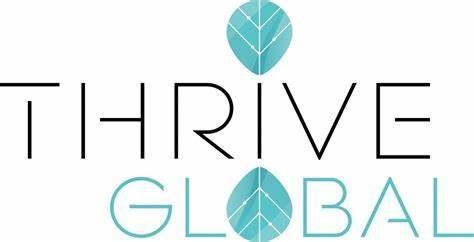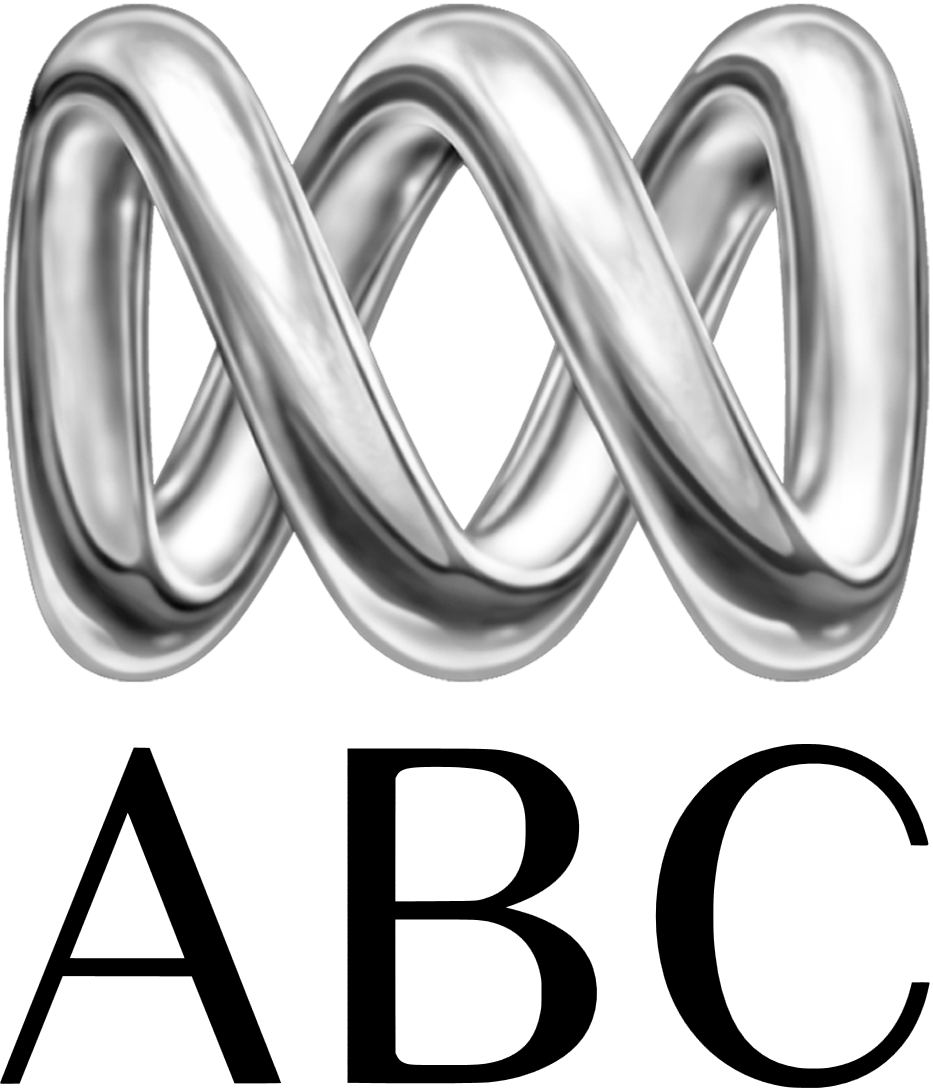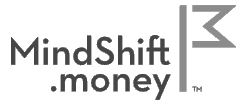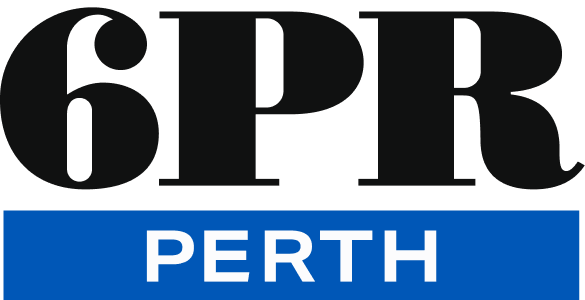CAREER COUNSELLING FOR PROFESSIONALS
Life's too short to be unhappy at work
A fulfilling career feels good.
It impacts every aspect of your life.
And gives an energy people notice.
Whether you're a leader, expert or professional all-rounder...
You deserve to find your niche and thrive in it.
Career Counselling with Anna Black
"I still can't believe I get paid to do something I love"
Feeling stuck?
You’re not alone.
Many of my clients feel frustrated when we first speak. They've been spending days, weeks or even months going around in circles on the internet.
And most have only just discovered that there's help available - they've always believed that Career Counselling is only for high-school kids!
If you want to get clear and find the career you'll love, you’re in the right place. I can show you exactly how to uncover all your options and re-define your future.
After the lightbulb went on, I completed a Master of Career Development and earned my stripes in the University of Western Australia careers service before building my private practice.
So you can stop scrolling endlessly through Seek!
Stop wasting your precious time. And start making actual progress towards the life you want.
If you're ready to make a change, click the button and find out how.
AS SEEN ON
Ellie's Story
"Now I feel capable, confident and at peace. I was so clear about what I was looking for, my new company created the job I wanted"
If you want to achieve this for yourself and get clear on your career path, click the button to find out how
"My career counselling experience with Anna resulted in razor-sharp clarity on how to proceed"
Still curious?

This time of year can be a total blur. Between the deadlines, events, and end-of-year overwhelm, it’s easy to lose focus, and even harder to make decisions about your future. You might feel stuck in a holding pattern - too tired to think clearly but still carrying the weight of uncertainty about your next move in your career. I’ve had so many conversations recently with professionals who are feeling flat, disconnected, or on the verge of burnout. And while this season can be draining, it can also be an opportunity. A moment to pause, regroup, and take one or two small but meaningful steps. In this blog, I want to offer three things I’m encouraging my clients to do right now - small, practical actions that can help reduce the noise, lift some pressure, and bring simplicity and focus as you close out the year. 1. Be honest about where you’re at Many of us have an inner voice that saysyou should be doing better... You should be more productive, more organised, more positive. You should have already worked out what’s next. But pushing through isn’t always the answer, especially if your energy is low. It’s okay if your focus has slipped. It’s okay if you’re tired. The end of the year often reveals what’s been simmering under the surface for a while. And being honest about how you’re feeling is the first step towards restoring your energy. This might mean acknowledging that your workload hasn’t felt sustainable. That your head feels full. That you’re avoiding decisions because you don’t have the space to make them confidently. None of that means you’ve failed. It simply means you’re human. 2. Focus on what’s in your control One of the reasons this time of year feels so overwhelming is because so much of it sits outside our control. Calendar commitments, end-of-year deadlines, and last-minute tasks or events, coming from others. When we feel overwhelmed, it’s easy to try to control everything. We over-schedule, over-commit, and over-think in an attempt to get ahead. But the price we pay for this, burning through our energy is huge. Instead, I encourage you to separate what’s in your control from what’s not. You may not be able to change your environment or workload right now, but you can: • Say no to things that aren’t necessary • Step back from the pressure to plan everything before January • Choose a smaller, more manageable step instead of chasing the “perfect” next move This kind of reset helps create breathing space which leads to increased mental capacity and better decision-making. 3. Choose one small step that you’ll thank yourself for later Many people reach this point in the year and think, “I’ll deal with everything next year.” That’s understandable. But deferring creates its own weight. You don’t need to do everything now, but choosing one small step can shift how you feel heading into the break can set you up for success down the track. That step could be: • Clearing your calendar of anything that isn’t urgent • Making a note of one change you want to explore in the new year • Registering for something that will support you when things slow down It doesn’t have to be dramatic. It just needs to support you. A guided reset for when you have the mental space If you’re like me, when you wake up on the 26th December and realise the holiday madness is over for another year, you feel lighter. You can breathe more deeply, settle on the couch with a coffee and let your mind wander for the first time in weeks. I love this precious window of space in the year, as it gives me the opportunity to be a little selfish. To think about my life, to play with ideas for the future, and set some gentle intentions without the pressure of the traditional new year resolution-setting. If you like the idea of getting my guidance during this time I’ll be running New Chapter, a free, five-day guided reflection series to help you reset, realign and think more clearly about what’s next. Each day from 26–30th December, you’ll receive: • A short audio message from me • An activity to help you reconnect with what matters It’s designed to be gentle, grounding, and useful. No pressure to solve everything, just a space to start fresh. You can register here: Join New Chapter. You don’t need a full strategy to finish the year well. You just need space, and one or two small steps that lighten the mental load and help you feel more like yourself again.

Lately, I’ve noticed something really worrying. So many people I’ve spoken with are exhausted. Mentally, emotionally — they’re hanging on by a thread. Perhaps it’s the time of year. The sprint to Christmas always brings a level of chaos. But this year feels different. More acute. More chronic. And it’s showing up in so many of the conversations I’m having. If you’re dragging yourself through the workday, wondering when you stopped enjoying what you do, you’re not alone. Burnout has become so common, but here’s the thing we rarely talk about: It’s not just about workload. Yes, being overworked plays a role. But the real reason burnout runs so deep for many mid-career professionals is something less obvious - and more challenging: Misalignment. Why you might be feeling close to burnout You might be brilliant at your job. You’ve worked hard to get where you are. But if your work isn’t a fit, you’ll feel it. And over time, it’ll wear you down. Here’s what misalignment can look like: • A disconnect between your values and your workplace culture • A gap between what you’re doing day-to-day and the activities that truly energise you • Working in a field or industry that you’re no longer interested in (or never were) • Feeling like your job doesn’t reflect your purpose or personality When just one of these is off, it starts to chip away at your energy. When two or more are misaligned, you’ll feel a deep sense of dissatisfaction which can lead to chronic stress. You can be good at something - even praised for it - and still get burnt out. That’s often because you’re spending your days using what I call burnout skills : the skills you’ve become great at over time but never enjoyed. They drain you. Quietly, steadily. And if you’ve been doing them for years… well, no wonder you’re exhausted. Why some people seem immune to burnout You’ve probably met people who work long hours, take on side projects, study part-time, volunteer... and somehow, they always have plenty in the tank. What’s their secret? Their work is aligned. Their energy isn’t leaking out through constant internal conflict. What they do matches what matters to them. It plays to their strengths. It means something. They’re fuelled by purpose. In contrast, someone working a standard 38-hour week in a job that bores them, feels pointless, or has a toxic culture that conflicts with their values? That person can be on the edge of burnout even if their calendar looks manageable. Burnout isn’t only about the number of hours you have to put in. It’s about the quality and alignment of the work. The role of uncertainty in burnout There’s another layer that’s compounding the stress people are feeling right now — and that’s uncertainty. In today’s world, we’re facing constant change. Industry disruption. Organisational restructures. AI reshaping roles. Redundancies. The world of work is shifting at an unsettling pace. When the future feels unstable, we tend to go into one of two modes: • Denial - pushing through, pretending it’s all fine • Control - overanalysing, overplanning, and overworking in an attempt to feel safe Neither of these are sustainable. And both drain your mental and emotional energy, fast. Trying to hold it all together when you feel uncertain about your role, your value, or your future is a job in itself. The importance of your “opposite world” There’s a concept I love from Nick Petrie’s work called your ‘opposite world’. It’s about building something into your week that’s the opposite of your work — something non-competitive, absorbing, and grounding. Some examples are: gardening, pottery, hiking, yoga, reading a novel, or playing a musical instrument. These activities have the ability to disconnect you from your workplace, the external noise, and the uncertainty you feel. They don’t just help you relax - they protect you from tipping into burnout. And when you combine that with understanding your values, your priorities and your needs, you you can regain control in the most powerful way: by designing a career that fits. What you can do next If this is resonating, the answer isn’t to keep pushing through. It’s to get curious. Ask yourself: • What part of my work is misaligned? • Where/when do I feel most energised? Where/when do I feel drained? • If nothing changed in the next 6 months, how would that feel? Sometimes the best plan is a new career direction, but not always. Many of my clients choose to craft their current role into a better fit (we call this ‘job crafting’) or commit to a passion project on the side. You don’t have to have it all figured out immediately. But you do need to start. If you're not sure where to begin, I’ve created a free quiz that helps you assess how well your current role matches your personal blueprint - your values, strengths, interests, and motivations. It’ll show you what’s working, what’s not, and what you can do next to feel more aligned and less overwhelmed. Take the Career Match Quiz Burnout doesn’t mean you’re broken. It might just mean you’ve outgrown your current path.

There’s a quote I love and share often “The contents of a jar can’t see what’s on the label”. - Blair Enns It’s a simple metaphor that illustrates why it’s so difficult to see ourselves objectively. In the career context, we undervalue our own skills (believing everyone can do what we can do), we’re blind to our unique strengths, and we dismiss the interests that energise us as ‘just hobbies’. This is why working out your career direction on your own can feel impossible. You can’t see what’s on your own “label.” How a career counsellor will help you see what you can’t As a career counsellor, my role is to provide that external perspective. I ask strategic questions, and notice the subtle shifts in energy when people talk about what lights them up. I see the patterns in their experiences - the skills and strengths they return to again and again without realising it which holds the key to what they have to offer. I open their eyes to what motivates and inspires them, connecting the dots between what they’ve done and what they really want. Without that external view, it’s easy to get stuck in unfulfilling work, and a never-ending loop of analysis. It’s a recipe for indecision and years of wasted opportunity. How career counselling uncovers the common threads in your interests and passions When I work with clients, I often see repeated themes in the stories they tell. Someone might talk about projects they enjoyed, roles they thrived in, or even hobbies that brought them joy. On their own, these things can feel unrelated. But from the outside, I can see the common threads that tie them together - it could be history, human stories, wellbeing, or conserving the natural world. Career counselling creates space for forgotten interests to resurface. Perhaps you played piano as a teenager, or always had a niggling desire to open your own cafe or write novels, but dismissed it as impractical. These clues can point to what energises you. By giving them attention and unpacking what lies beneath, you open up the range of possibilities to bring them to life in practical ways. How a career counsellor helps you validate what’s important On your own, we almost always dismiss our passions and talk ourselves out of new directions which don’t fit society’s definition of practical or realistic. My role is to help you validate those parts of yourself that are outside of this ‘sensible’ box, and see them as important. That validation is powerful - it allows you to take yourself and your ideas seriously. To test them, properly evaluate them, so you can make a confident decision about whether they’re worth pursuing – the decision that’s best for you. Case study: What a childhood dream revealed about career direction With one client I uncovered a childhood dream that he had dismissed years before. When he was young, he had wondered about being a firefighter, like his grandfather. On the surface, it seemed unrealistic. He had young kids and family commitments, and the training and role requirements of the fire service meant joining simply wasn’t possible. So, we dug deeper. We explored what it was about the fire service that was appealing. What was driving him? What would he get out of being a fire fighter? What boxes was he trying to tick? It turned out, that it represented service to the community, physical challenge, and being outdoors. By identifying those underlying motivations, we were able to explore a whole range of career options that would capture the essence of what mattered most to him – from working in sport, community services and a range of other possibilities. He ended up finding a local government role in community security services that’s a great fit and also works well for his family. Taking the next step with career counselling I know firsthand how difficult it is to figure out your career path alone. I spent seven years stuck in a career that didn’t fulfil me, searching endlessly for answers (and getting nowhere). It was only when I worked with a career counsellor myself that I realised this was the work that ticks all the boxes for me. The guidance gave me clarity and certainty about the work that’s the best fir for me, and set me on the path to creating my own career counselling practice. If you’re stuck, dissatisfied, or unsure of your next move, you don’t have to do this alone. Career counselling gives you the guidance, the structure, and that critical external perspective to uncover a career that gets you jumping out of bed in the morning. If you want clarity and confidence in your next step, join me for my free masterclass: “Find the Career You Love in 2026”. Happening on Monday 27 October, 7–8.30pm AWST / Perth time. I’ll walk you through my proven process for finding a career that truly lights you up. Register here.












